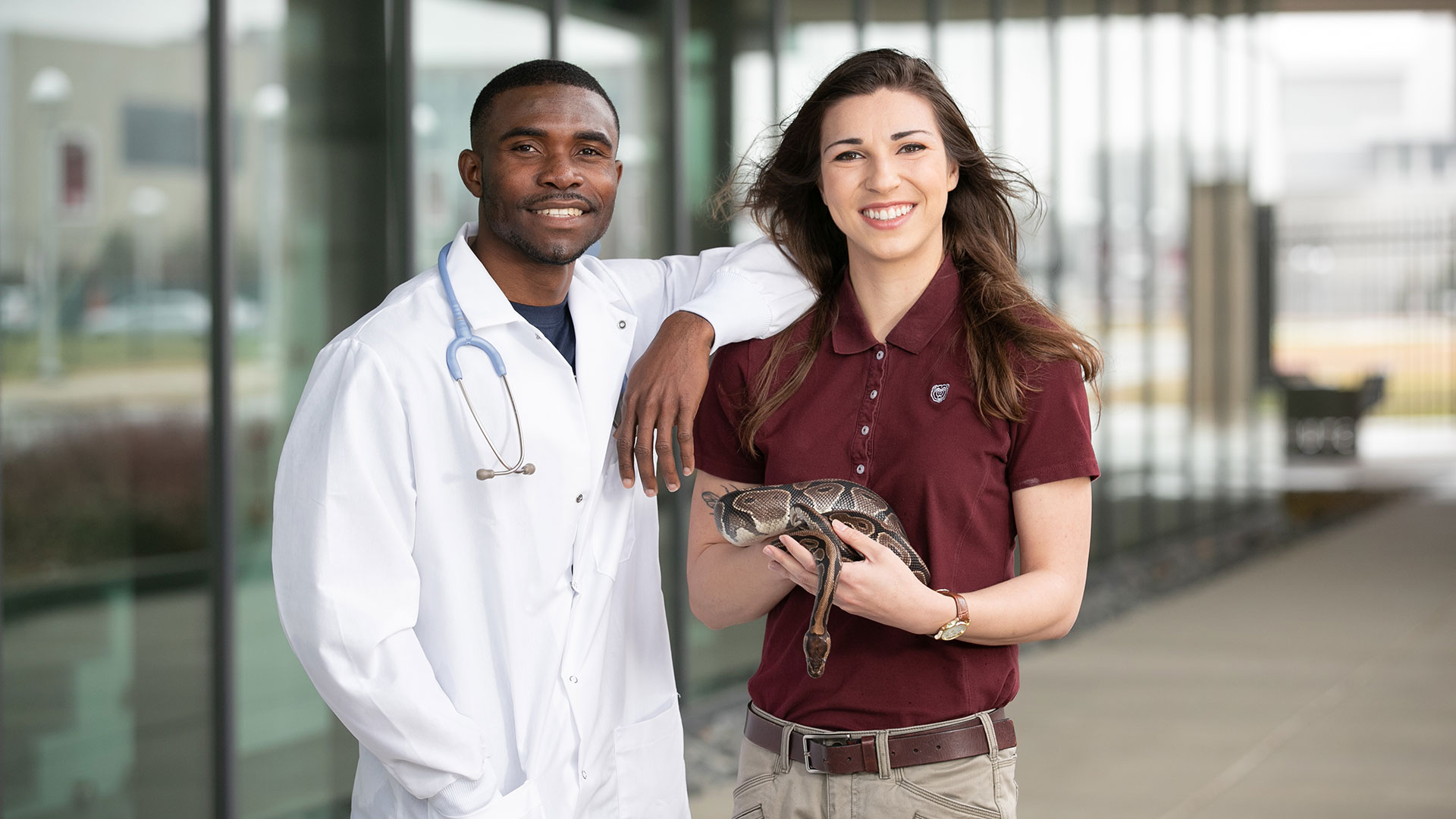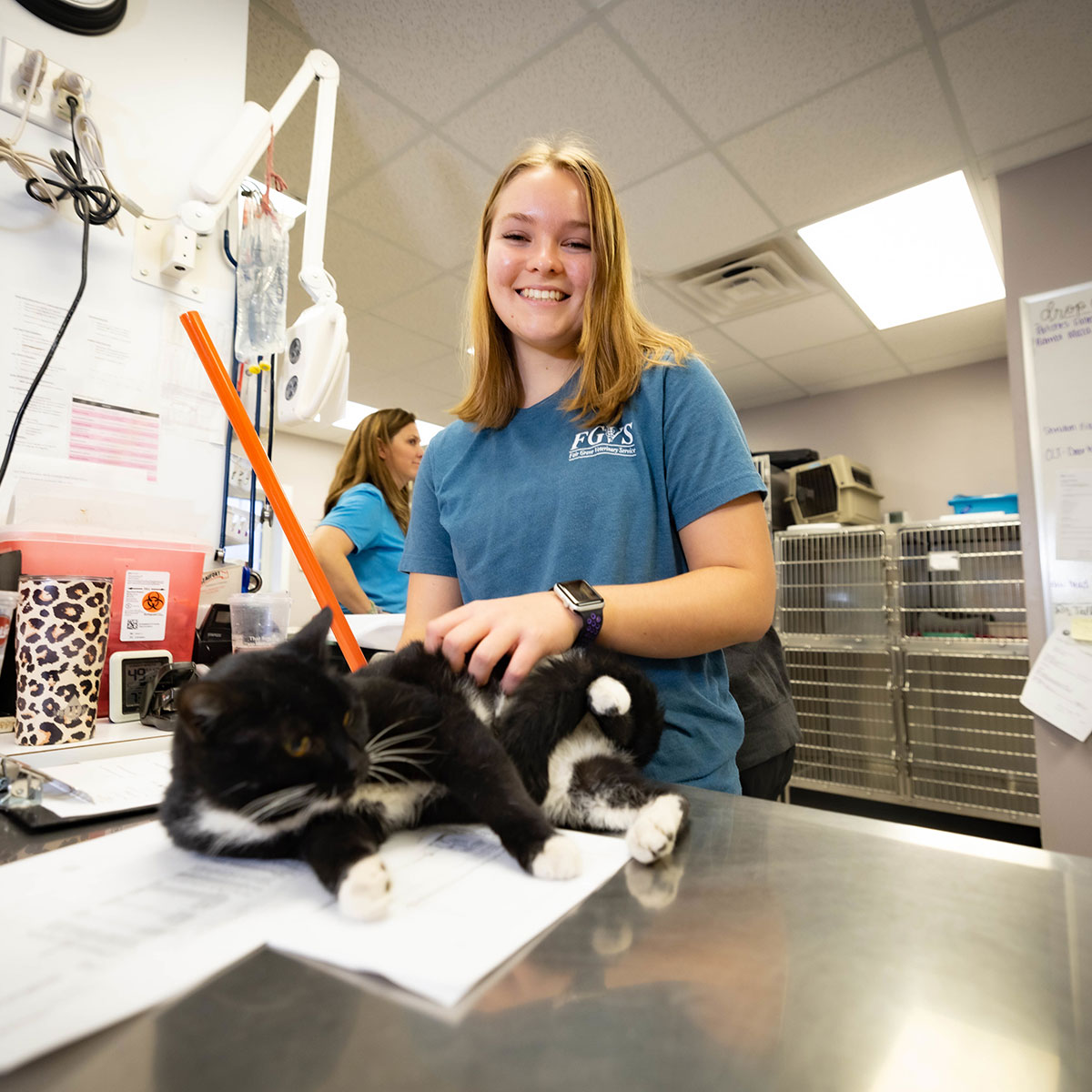Careers and Outcomes

Care for animals with scientific expertise
Explore the biology of animals as a veterinarian.
With a degree in biology, you'll have the skill-set to treat animals or pursue other science-related jobs.
What does a veterinarian do?
Your primary role as a veterinarian will be to promote and improve the health of animals.
You'll diagnose and treat a variety of injuries and health conditions.
Most veterinarians have a knowledge of:
- Dentistry
- Diet and nutrition
- Medication
- Microchipping
- Parasite/disease control
- Surgery
- Vaccination
Veterinary medicine can also take you into careers involving research, education and public health.
How do you become a veterinarian?
After you complete your undergraduate requirements (biology degree), you'll need to earn a Doctor of Veterinary Medicine (DVM) degree at an accredited college or school of veterinary medicine.
Our pre-veterinary program will give you a foundation in science and prepare you to apply to these accredited programs to complete your DVM degree.
Job outlook for veterinarians
There's an increasing demand for skilled veterinarians. Your expertise will be valuable in the workforce.
$119,100
20%
Where can you work as a veterinarian?
Typically, veterinarians work in private clinics and hospitals. Other workplaces may include:
- Corporations/businesses that provide veterinary care
- Farms and ranches
- Government/research facilities
- Private practices (clinics)
- Public health/public policy
- Schools and educational settings
- Shelters and public agencies
Veterinary professionals can work in indoor, outdoor or remote settings.

Career options outside of veterinary medicine
A bonus to our pre-vet program: You'll have a biology degree that will prepare you a variety of science-related jobs.
So, even if you decide veterinary medicine isn't right for you, you'll still have many career options available to you.
What can you do with a biology degree?
A bachelor's degree in biology helps you pursue careers in science and health.
You'll be able to work in a variety of industries, like medicine, research, ecology, zoology and more.
Possible career paths
- Biologist
- Biology educator
- Conservation biologist
- Curator
- Dentist
- Ecologist
- Environmental specialist
- Forensic scientist
- Genetic counselor
- Marine biologist
- Park ranger
- Pharmacist
- Physician
- Research technician
- Science writer
- Sustainability coordinator
- Wetland scientist
- Zookeeper
Biology also pairs well with other subjects, like agriculture, business, education and health.